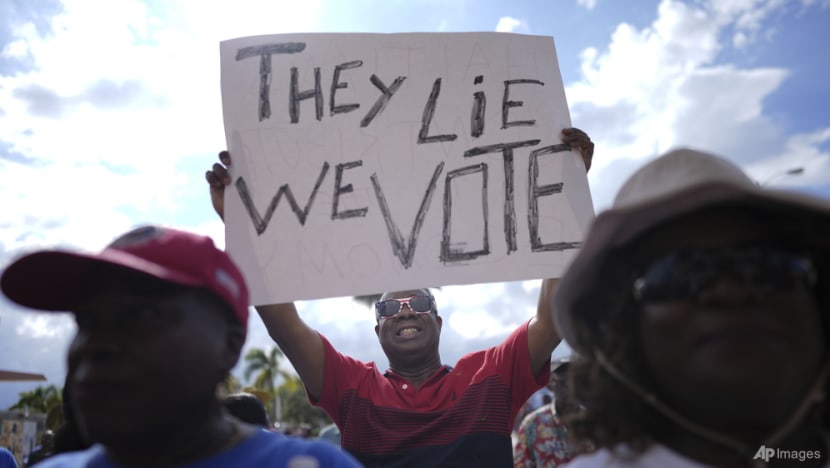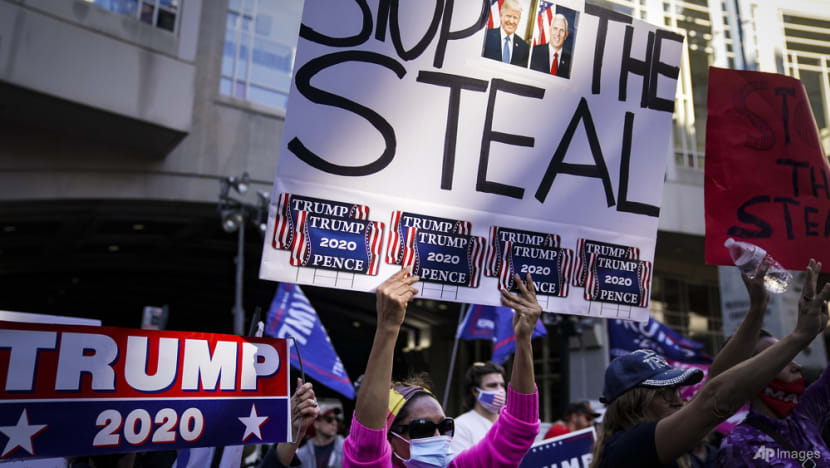Disinformation remains major campaign concern as US election nears
False information could play a critical role in what is expected to be a razor-thin race to the White House between Kamala Harris and Donald Trump.


This audio is generated by an AI tool.
SAN FRANCISCO: As election day approaches, voters in the United States are facing a deluge of false information online.
Untruths on issues ranging from voter fraud to false stories about the candidates have spread rapidly on social media, often amplified by artificial intelligence tools.
“It’s a huge problem. Nearly 60 per cent of Americans say they don't know what to believe about the election,” said Carah Ong Whaley, vice president of election protection at Issue One, a non-profit election watchdog group.
One widely shared video showed submitted ballots supposedly being ripped up in the swing state of Pennsylvania. US intelligence agencies stated the video was fake, saying it was the work of Russian propagandists.
Washington has accused foreign actors of seeking to interfere with the vote by spreading false claims, with intelligence agencies specifically calling out Russia, Iran and China for election influence campaigns.
SOCIAL MEDIA INTENSIFIES FALSEHOODS
Major changes to the social media landscape have allowed disinformation to spread more easily, leading to fears it could play a critical role in what is expected to be a razor-thin race to the White House.
Since the 2020 election, companies including Meta – the parent of Facebook and Instagram – have taken a major step back from trying to moderate content.
With no legal obligation to do so in the US, and facing political pressure from both sides, many firms decided it was just not worth it.
Justin Buchler, an associate professor of political science at the Case Western Reserve University, said online platforms could find it tricky to discern truth from falsehoods.
“When we face those kinds of dilemmas, the problem that social media companies have is if they start labelling a piece of information as misinformation and disinformation, and restrict it in some way - what happens if that claim turns out to be true?” he asked.
Related:
It is even less clear what impact disinformation might have on the outcome of an election, as the main determinant to an individual voter’s choice is just party identification, Buchler added.
“It's hard to say how many votes are swayed by misinformation or disinformation. But in a close election – as the 2024 election is likely to be – in principle, even a small number of votes could determine an outcome,” he told CNA.
FALSEHOODS COULD CAUSE CHAOS
Experts said that once the disinformation is out there – whether the goal is to support a candidate or to simply sow chaos – it can easily spread organically.
“Probably, most people who spread disinformation (are) doing it unknowingly,” said Darren Linvill, co-director of Clemson University’s Media Forensics Hub, adding that some may be locked in an echo chamber.
“They do it because the message confirms their existing beliefs. It makes them feel good about their existing beliefs, and they share it for those reasons.”
Related:
Many believe disinformation could be an even more significant factor in this election after voting has ended.
Election personnel have already faced threats dating back to the previous election, while US officials have warned that workers may face heightened risks in the current climate.
Researchers said false information on social media, particularly Facebook, played a crucial role in spreading lies that led to violent unrest on Jan 6, 2021.
On that day, die-hard supporters of then-president – and current Republican nominee – Donald Trump stormed the Capitol to prevent Joe Biden from taking office, believing poll results were fraudulent.
Listen:

This time, much of the disinformation in the lead up to the race to the White House has been focused on undermining the integrity of the electoral process. These claims have been amplified by the Trump campaign and supporters like billionaire Elon Musk.
Observers expressed fears that if false information takes hold during a delay in declaring a winner, many Americans could be left unsure about what to believe and increase the risk of another bout of violence in the election aftermath.















